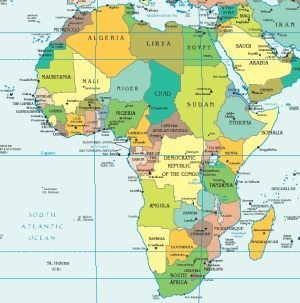 This term has two different parts: the word gender and the Latin prefix cis, which means "on the same side of". Its antonym or opposite is transgender and the prefix trans means "on the other side of."
This term has two different parts: the word gender and the Latin prefix cis, which means "on the same side of". Its antonym or opposite is transgender and the prefix trans means "on the other side of."
The words cisgender and transgender are related to sexual identity
The term cisgender indicates that a person's sexual identity matches the gender to which they belong. Thus, it is someone who was born a man and is considered male or who was born female and is considered female. When this identification does not occur, we are talking about a transgender person.
Being a cisgender or transgender individual has nothing to do with heterosexual or homosexual sexual tendencies. A cisgender can have any sexual inclination. Thus, there are cisgender homosexual men (they perceive themselves as men but have sexual interest in other people of the same sex), there are cisgender heterosexual men (they see themselves as men and are attracted to women) and the same thing happens with heterosexual or homosexual women.
Sexual orientation, biological sex and gender identity
By sexual orientation, we understand the type of sexual attraction towards other people (if a woman is attracted to men, she belongs to the heterosexual category and if she is attracted to women, it would be homosexual or lesbian).
The concept of biological sex refers to genetic differentiation. The human being has 23 pairs of chromosomes and precisely the 23rd pair is the one that determines the sex of each individual. Genetic sex presents two variables: xx for women and xy for men.
 It should not be forgotten that there are not only two genders (male and female) but that in some cases there are intersex individuals, which are those people who present characteristics of both sexes. These differences in turn imply a hormonal variation, that is, the predominance of estrogens or testosterone in male or female individuals. The environment and individual circumstances of each person will influence the biological development of people.
It should not be forgotten that there are not only two genders (male and female) but that in some cases there are intersex individuals, which are those people who present characteristics of both sexes. These differences in turn imply a hormonal variation, that is, the predominance of estrogens or testosterone in male or female individuals. The environment and individual circumstances of each person will influence the biological development of people.
Gender identity does not necessarily depend on biological sex, since it is about another question: how each individual perceives himself with respect to his sex
It supposes the answer that we give to a question as simple as it is profound and totally personal: who am I?
Apart from this initial question, other questions also intervene: how do I act? How am I perceived by others? And how do I feel about my identity?
Photos: Fotolia - Elena3567 / Thinglass









